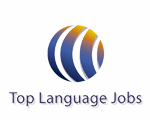Theoretically, qualifications recognised by professional and trade bodies in any EU country should be recognised in Ireland. However, recognition varies from country to country, and in some cases foreign qualifications aren’t recognised by Irish employers or professional and trade associations.
All academic qualifications should also be recognised, although they may be given less prominence than equivalent Irish qualifications, depending on the country and the educational establishment. A ruling by the European Court declared that when examinations are of a similar standard with just certain areas of difference, then individuals should only be required to take exams in those particular subjects.
In general, degrees from universities in most Western countries are considered equivalent to degrees from Irish universities and most school qualifications are considered equivalent to Irish school qualifications, at least so far as employers and university admissions staff are concerned.
With regard to industry-specific qualifications, these vary greatly from one sector to another. In each area there may be reciprocal agreements with certain other countries or acknowledged similarities in courses and work experience. Although the National Training and Employment Agency, FÁS, helps Irish companies to recruit abroad, it’s left to individual employers to check whether foreign qualifications are acceptable. In the case of professions such as teaching and nursing, the relevant government department will issue guidelines as to qualifications and experience required to work in Ireland.
For certain jobs you must be registered with the appropriate Irish professional organisation. The registration process includes an assessment of your professional or trade qualifications and leads to membership of the appropriate body, thus allowing you to work in Ireland. If your trade or profession is one where registration is required, you should contact the relevant body well in advance as you may need to take an examination or undergo a period of retraining, for which you must pay. In some cases, examinations can be taken in other countries, although they may be held on one or two days a year only. You should check with the relevant trade or professional association.
All EU member states publish occupation information sheets containing a common job description with a table of qualifications. These cover a large number of trades and are intended to help someone with the relevant qualifications look for a job in another EU country.
For information about equivalent academic and professional qualifications in Ireland contact the Department of Education, International Division, Apollo House, Hawkins Street, Dublin 2 (Tel. 01-873 4700). In the UK, information about academic qualifications can be obtained from NARIC, ECTIS 2000 Ltd. (Oriel House, Oriel Road, Cheltenham, Glos. GL50 1XP, UK, Tel. 01242-260010, ) and information about the recognition of professional qualifications from the Department of Trade and Industry, 2nd Floor, Kingsgate House, 66-74 Victoria Street, London SW1F 6SW, UK (Tel. 020-7215 4405). You can also check whether trades and professions are officially recognised on the European Union website ( http://citizens.eu/int ).


